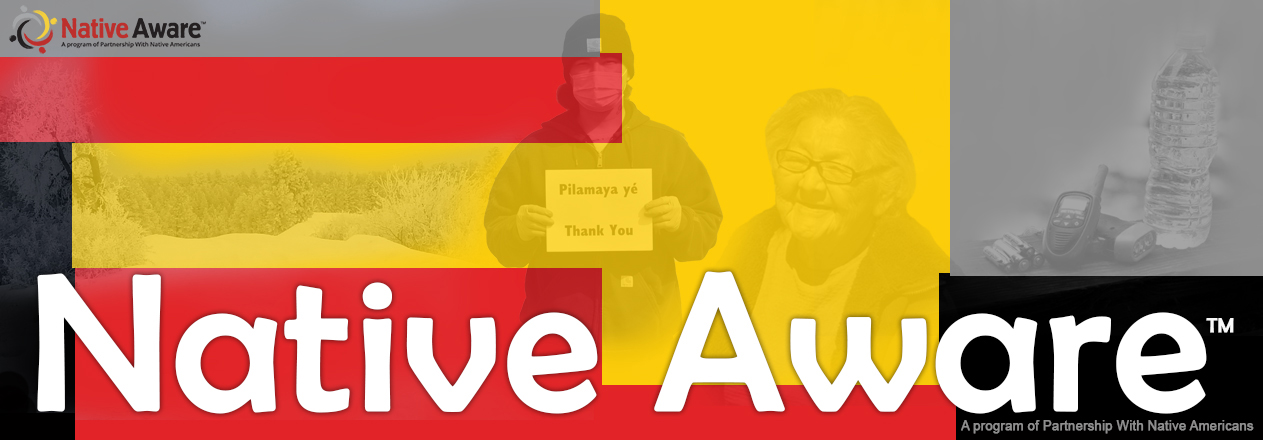
Environmental disasters such as floods, forest fires, blizzards, ice storms, tornados and hurricanes occur often on the reservations PWNA serves, displacing people or contaminating the local water supply. Some reservation communities live year-round with contaminated water due to mining and other factors. Unfortunately, when disaster strikes the reservations, word is slow to reach mainstream media and outside aid is slow to come.
In addition, winter warmth is a challenge for many Elders living on fixed incomes, about 90,000 Native Americans are homeless, and 40% live in sub-standard, overcrowded housing. This has a huge impact on individual and community health, especially during the long Northern Plains winters, flu seasons and periods of pandemic.
PWNA is a member of National VOAD, a reliable first responder quick to act when disaster strikes on the reservations, and a proactive partner in helping tribes achieve disaster readiness.
Here's how PWNA's emergency response helps the reservations:
- Emergency deliveries of food, water, blankets, hygiene kits and more
- Supplies for residents at reservation shelters for the aged, homeless, disabled and abused
- Firewood or winter fuel vouchers for Native American Elders (as funding permits)
- Winter and summer emergency kits to help prepare Native Elders for seasonal outages
- Facilitation of emergency preparedness planning, asset mapping and networking to build tribal readiness to respond when disaster strikes
- Emergency response trainings focused on CPR, AED, CERT (community emergency response team) and more
Learn more about emergency response and how PWNA helps with immediate and long-term relief:
- Video — Disaster relief
- Video — Wes Studi 4 COVID Relief
- Download — Winter risk for Elders
- Blog — COVID-19 relief
- Blog — Emergency preparedness
- Blog — Winter on reservations
- Blog — Animal welfare during COVID-19
